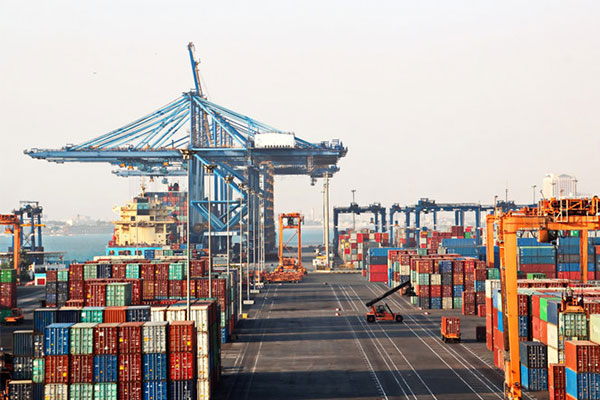Japan attracts exporters from all over the world with its developed economy and highly regulated market environment. However, the processes and procedures for exporting to Japan are complex, especially for companies entering the market for the first time. Knowledge of Japan’s export customs policies and specific procedures is crucial to ensuring smooth and efficient delivery of goods to the Japanese market. This article aims to detail the basic processes and procedures for Japan’s export customs.

Japanese Export Customs Basic Processes and Procedures
Japan’s export customs procedures are very detailed and rigorously designed to ensure that all goods entering the country meet its safety, health and economic policy requirements.
Signing of export contracts: Before formally entering the customs process, the exporter must sign a detailed export contract with the Japanese buyer, which clearly specifies the specific terms of the transaction, including the description of the goods, quantity, price, delivery time, payment conditions, etc.
Preparation of customs information: Exporters need to prepare a series of documents required for customs declarations, which usually include commercial invoices, packaging documents, transportation documents, proof of origin, necessary licenses and sanitary certificates, etc. These documents must be complete and complete to avoid delays during customs review.
Logistics arrangements and customs reporting: Next, exporters need to choose the right logistics service providers to arrange the shipment of goods and work with customs authorities to complete the declaration of goods to the Japanese Customs.
Customs inspection and payment of taxes: The Japanese Customs will conduct detailed document inspections and possible physical inspections of all imported goods. Exportors are required to pay corresponding customs duties and other taxes as required by the Customs. Once the goods have been inspected correctly and the taxes have been settled, the Customs will release the goods.
Delivery and follow-up of goods: Upon completion of all inspection and taxation procedures, the goods will be officially released, and exporters will be able to track the status of the goods through logistics service providers until the goods safely reach the hands of Japanese buyers.
Japanese Export Customs Policy
The Japanese government has developed a series of policies to regulate and guide export customs processes to ensure that all import activities comply with domestic and international laws and regulations.
Declaration of Export: All goods intended to be exported to Japan must be formally declared at the customs, including providing complete information on the goods and relevant legal documents.
Export controls and prohibitions: Japan imposes export controls on certain commodities, especially those related to national security, environmental protection and public health.Exporters must obtain appropriate export licenses before exporting these controlled commodities.
Preferential trade agreements: Japan has signed Free Trade Agreements (FTAs) with several countries and territories, which include clauses such as tariff relief. Exporters may benefit from these benefits if they provide a qualified proof of origin.
III. Response Strategies and Suggestions
In order to ensure smooth export customs processes through Japan, exporters can take the following strategies:
Detailed knowledge of relevant regulations: Exporters should have an in-depth understanding of Japan’s export and entry regulations, in particular specific provisions relating to their goods, to ensure compliance with all documents and processes.
Choosing a reliable partner: Choosing experienced, reliable logistics and customs service providers can effectively reduce the pressure in the export process and ensure that all procedures are correct and efficient.
Continuous communication and monitoring: During the export process, continuous communication with buyers, logistics service providers and customs offices, real-time monitoring of the status of goods and any possible changes or needs, can respond to problems that may arise in a timely manner.
Exports to Japan face many challenges, but through careful preparation and effective management, exporters can completely overcome these barriers and successfully sell their products to the Japanese market.In addition, understanding and leveraging Japan’s export policies and free trade advantages will further help exporters expand their business in Japan.


 Follow customer service WeChat
Follow customer service WeChat